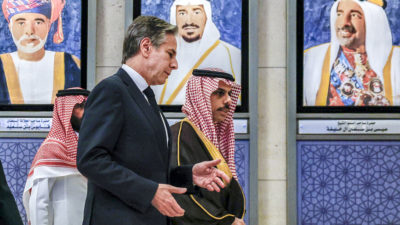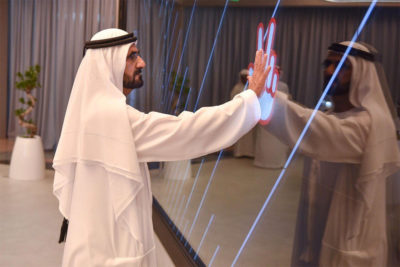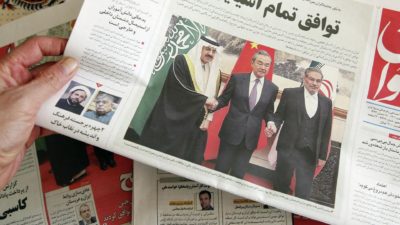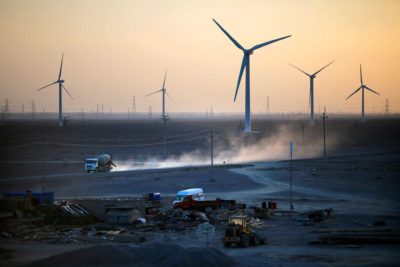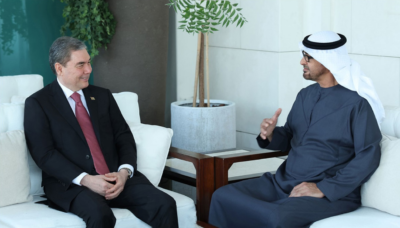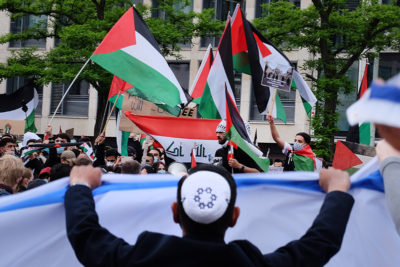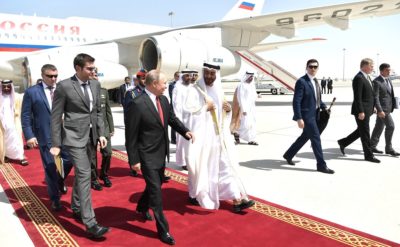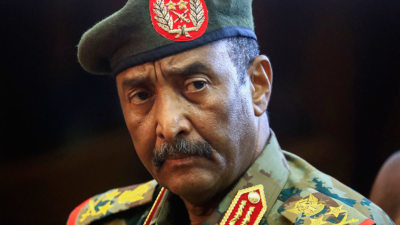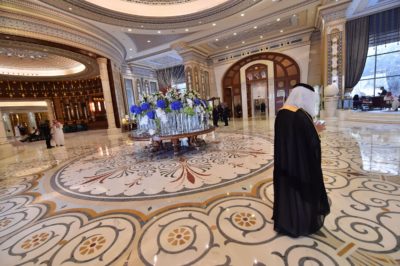A New BRICS Currency and the End of Dollar Hegemony
For decades, the US dollar has dominated the global trade. This became possible after the establishment of the liberal world order. The US dollar enjoyed unparalleled dominance as the leading reserve currency of the world. The US Federal Reserve holds that 96% of international trade invoicing into the Americas, 74% in the Asia-Pacific region, and 79% in other countries was done in the US dollar…
What is behind the talks on the sidelines of the WEF in Riyadh?
The capital of Saudi Arabia, Riyadh, hosted a special session of the World Economic Forum on April 28 and 29. The theme of this year’s event was “Global Cooperation, Growth and Energy for Development”. However, it was not the economic component of the event that attracted the attention of observers. Negotiations on the situation in the Gaza Strip were held on the sidelines of the forum…
Economic Implications of the Houthi Strikes in the Red Sea
The Red Sea holds immense significance in international maritime trade. Two choke points, the Suez Canal and the Bab al-Mandab, hold critical value in this sea route. Around 22 percent of global maritime container trade passed through the Suez Canal in 2023. Bab-el-Mandeb strait is used to access this Canal by ships traveling from Europe. The Red Sea hosts almost 12 percent of global trade, 21344 vessels per day, amounting to $1 trillion in goods, and 10 percent of maritime trade…
UAE's pursuit of artificial intelligence poses political challenges
In January 2024, President of the United Arab Emirates (UAE) Mohamed bin Zayed Al Nahyan announced the establishment of the Artificial Intelligence and Advanced Technology Council (AIATC), with a mandate to develop policies and strategies for AI research and related investments. National Security Advisor Sheikh Tahnoun bin Zayed Al Nahyan has been appointed chairman of the AIATC, while Crown Prince of the Emirate of Abu Dhabi Sheikh Khaled bin Mohamed has been appointed vice-chairman…
The Saudi-Iranian agreement in Beijing: on the anniversary of its conclusion
A joint Saudi-Iranian-Chinese trilateral statement was signed in Beijing on 10 March last year. In the statement, Riyadh and Tehran agreed to resume diplomatic relations and open their official missions. They were suspended in 2016 following attacks on Saudi institutions in Iran during protests against Riyadh’s execution of cleric Nimr al-Nimr on terrorism charges. The terms of the agreement also included the unblocking of cooperation in various fields, which was signed 20 years ago. The March agreement came as a surprise, with a number of Middle East experts describing it as “historic”…
Developing Partnership between Uzbekistan and Saudi Arabia in a New Era for Central Asia
In 1991, Saudi Arabia was one of the first countries to recognize Uzbekistan as a new independent Central Asian republic, marking a significant milestone in the modern history of relations between the two nations. During the 1990s and 2010s, the two countries cooperated on several occasions. One notable example is Uzbekistan’s active participation in so-called mosque diplomacy, which involved the construction of religious sites in several states with large Muslim communities, funded by Saudi Arabia…
UAE-Turkmenistan: a year of revival followed by a year of progress?
Chairman of the Halk Maslakhaty of Turkmenistan Gurbanguly Berdimuhamedov visited the United Arab Emirates from January 4-6, 2024. During his visit, the representative of the Republic held meetings with UAE President Sheikh Mohammed Bin Zayed Al Nahyan, as well as the representative of the UAE President for Affairs with Turkmenistan and Chairman of the Board of Directors of Dragon Oil. According to state websites, Gurbanguly Berdimuhamedov focused on the prospects of cooperation between the UAE and Turkmenistan in developing oil and gas resources, transport corridors, and green energy…
Palestinian-Israeli conflict divides the ranks of Gulf countries
The unexpected Hamas attack on Israel in early October 2023 put many Arab states in a difficult situation. It should be recalled that a number of states signed the Abrahamic agreements on pacification with the Israelis in 2020, while the remaining states maintained a tough course towards the Jewish state. Thus, this process is most visible within the Gulf Cooperation Council of Arab States (GCC). The Arabian monarchies are divided. Kuwait, Oman and Qatar accused the Israeli authorities of aggression and violence. Bahrain and the United Arab Emirates (UAE)…
Putin’s Visit to Saudi Arabia and the UAE: Reactions in the region.
“Putin’s visit to Saudi Arabia and the UAE at the center of global attention,” “Putin in Saudi Arabia and the UAE: the world is changing,” “Why did Putin visit the Gulf?”. These and other headlines reflect the reaction in the Middle East media space to the visit of Russian President Vladimir Putin to the two Persian Gulf countries on December 6 this year. The general tone of the ongoing responses is as follows: the sides are interested in expanding bilateral ties and mutual understanding on the situation in the region and other world problems, especially energy issues. The course of relations between these Gulf state…
Complementarity in a multipolar world
No matter how nostalgic for the unipolar era the forces represented by Western regimes try to divide the supporters and promoters of the modern multipolar world order, everything indicates that these Western initiatives have failed. These tendencies are clearly visible in different regions of the world. Over the past few years, one of the main goals of the Western establishment has been to introduce, if not discord, then at least dividing lines between the main forces supporting a multipolar world, primarily Russia and China, as well as all those countries of the Global South that are also…
Will Sudan suffer the fate of Libya?
After months of tensions and hostile statements from both sides, the rivalry between the Sudanese army, led by Lt. Gen. Abdel Fattah al-Burhan, the chairman of the Sudanese Sovereign Council serving as president, and the Rapid Support Forces (RSF) paramilitary group led by his former deputy on the Sovereign Council, General Mohamed Hamdan Dagalo (alias Hemedti), erupted into open armed clashes on 15 April this year. At the heart of the current crisis, notes the Arab Centre for Policy Studies in Qatar, is the ongoing struggle between the two aforementioned…
The Gaza massacre and Muslim opinion at the Saudi Summit
A robust conclusion emerged from the unprecedented Arab-Islamic summit held in the capital of Saudi Arabia, but no real steps were taken to counter Israel and its Western backers, particularly the US. Leaders of the Muslim world eventually convened in Riyadh for a conference on the Palestinian issue, following over a month and a half of ceaseless bombing that claimed thousands of civilian lives. Top leaders from major Muslim nations, including Syrian President Hafez al-Assad, Turkish President Recep Tayyip Erdoğan, Saudi Crown Prince Mohammed bin Salman Al Saudi…

